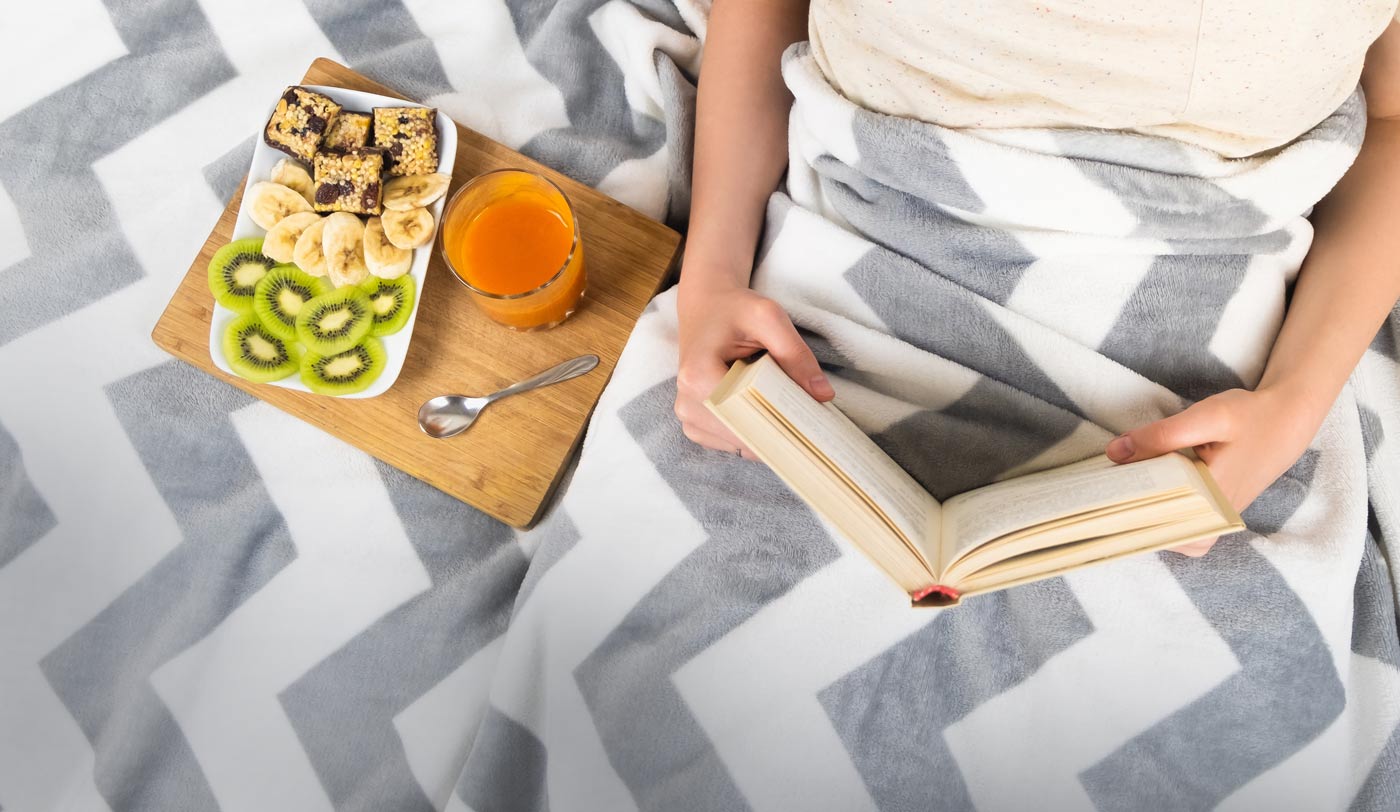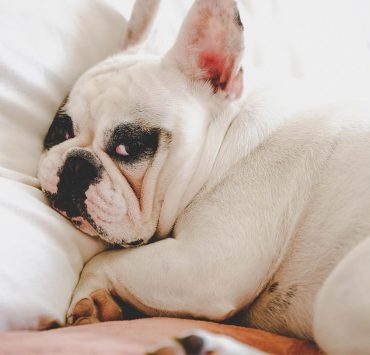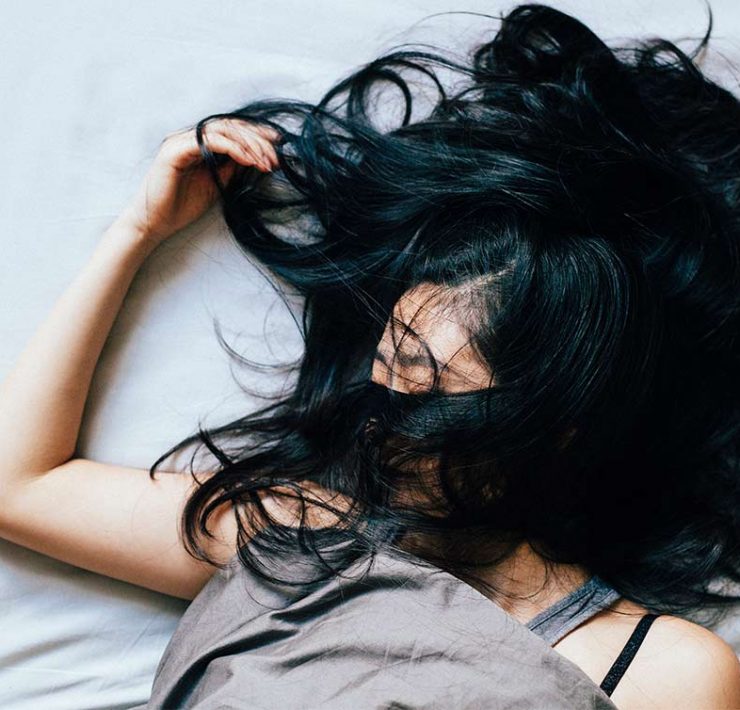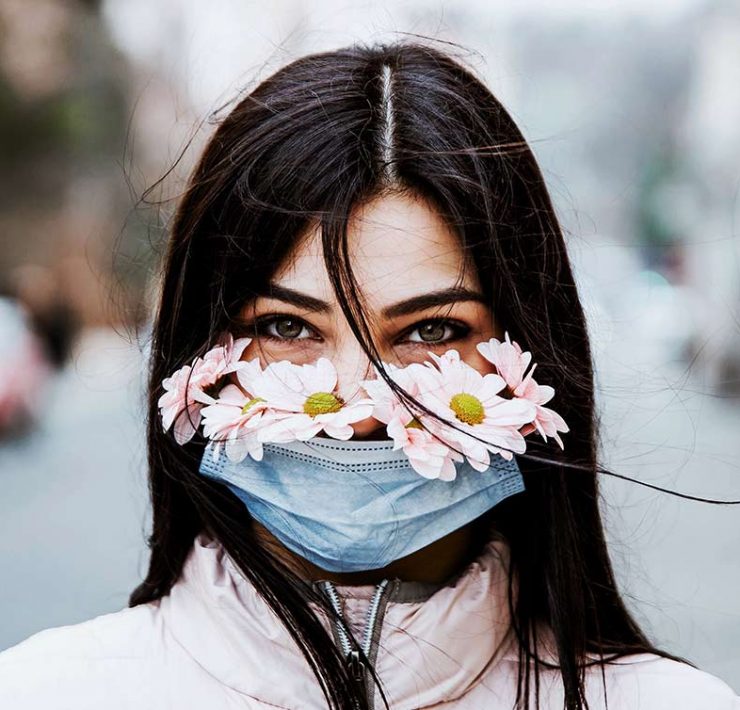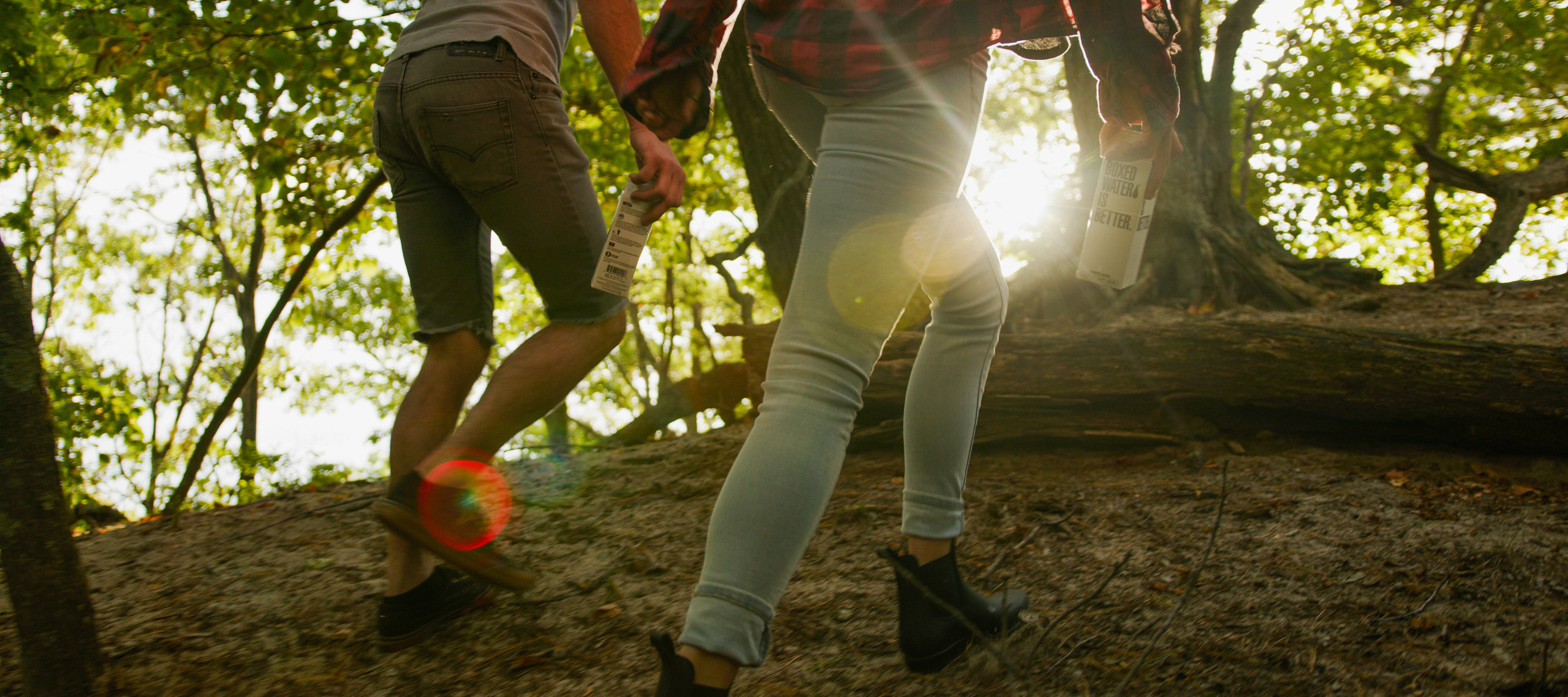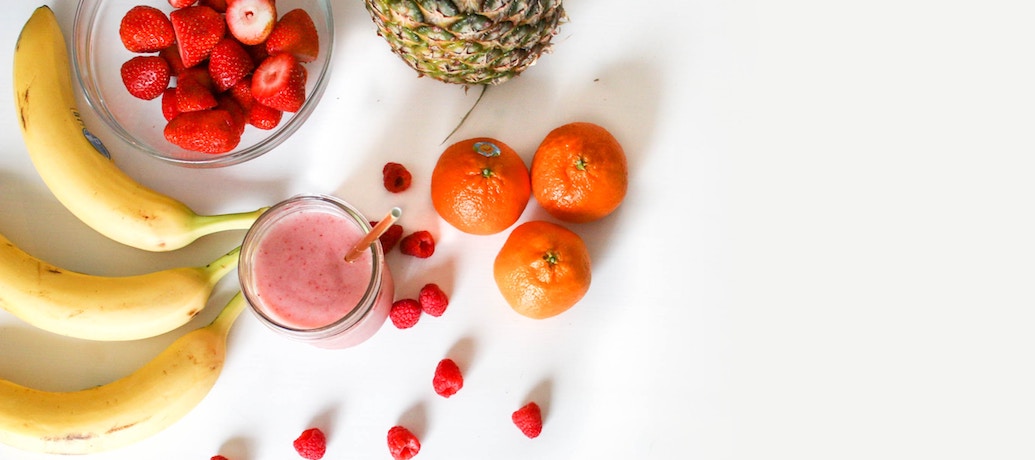Fact: A good night’s sleep is critical to mental health and physical wellbeing.
Nowadays, we’re all thinking about how to reduce both mental and physical stress. While a flight to Tahiti or even a long brunch with friends might not be in the cards, there’s much you can do in your home to take good care of yourself. One of the best things you can do to bolster your immune system and reduce stress hormones: A good night’s sleep. Even one night of insomnia can raise blood pressure and increase anxiety, according to Harvard Medical School—and you certainly don’t want that. Poor sleep habits can lead to chronic health issues such as weight gain, hypertension and a weakened immune system.
But sleeping well isn’t just a matter of getting into bed at a reasonable hour (though that definitely helps). It’s also greatly affected by what you eat. Learn how to eat for better sleep.
When to Eat to Support Your Sleep Cycle
Eating too close to your bedtime causes your blood sugar and insulin levels to rise. This can make it more difficult to fall asleep. Further, if you lie down shortly after eating, you may trigger acid reflux. That’s because the acid in your stomach is more likely to escape into your esophagus, potentially leading to heartburn. Most experts recommend that you stop eating three hours prior to going to bed. Of course, this doesn’t mean you should scarf down half a pizza at midnight and stay up until 3 am—if possible, stop eating by 8 pm at night.
What to Eat for Better Sleep
Timing isn’t the only factor that matters when it comes to food and sleep. What you ingest has a great impact as well. To that end, we’ve compiled a handy list of foods you eat to promote better sleep, as well as foods that can cause sleeplessness.
Foods that help you sleep
Bananas – If you’re on the prowl for a pre-bedtime bite, think about reaching for a good ol’ banana. Bananas contain both potassium and magnesium, two minerals that act as natural muscle relaxants. They’re also high in carbohydrates for a fruit – and carbs can help you sleep at night.
Cherries – Cherries are another great option for an evening snack. Not only are cherries delicious and nutritious, cherries are one of the few foods that naturally include melatonin – a hormone that helps regulate the body’s internal clock. You might call cherries a natural sleeping pill.
Almonds – Just like bananas, almonds provide the muscle-relaxing mineral magnesium. Almonds are also high in calcium, which can help regulate the nervous system (frantically firing synapses are bad for sleep. ) Moreover, calcium helps the brain convert tryptophan (an amino acid) into melatonin.
Soy – No matter whether you like to tuck into a bowl of miso, a handful of edamame or a plate of tofu, soy products are terrific sleep aids. These foods are rich in isoflavones, a compound that boosts production of serotonin. Serotonin, like the aforementioned melatonin, influences the body’s wake-sleep cycle. It also lifts mood and can even prevent nightmares.
Kiwis – Kiwis are a powerhouse when it comes to hastening sleep. The fruit is chock-full of folate and serotonin. Folate deficiency has been linked to insomnia – so make sure you’re full-up on folate. (Admittedly, the little black seeds are annoying, so floss before bedtime.) Citrus is folate-ful as well, so oranges and grapefruit work nearly as well. Other foods high in folate include eggs and beans (which you might have in your pantry).
Whole grains – Whole grains like bulgur, barley and buckwheat are sleep-friendly foods. They are rich in magnesium which, as we mentioned above, is a natural relaxant.
What Not to Eat Before Bed
Alcohol – Alcohol can disrupt sleep patterns. While you might pass out after indulging, alcohol, in addition to be a depressant, disrupts your brain wave patterns and reduces your high-quality sleep. Alcohol can also magnify any breathing issues, interrupting sleep. Finally, alcohol quickly metabolizes in your system thus causing you to wake up and visit the bathroom multiple times throughout the night. (For similar reasons, you should be careful about mixing massage and alcohol.) That said, if you do indulge, choose the right alcohol to avoid insomnia. Wine Spectator suggests that red wine made from nebbiolo grapes has a significant amount of melatonin, a hormone that can induce restful sleep.
Coffee – Coffee contains caffeine, a drug that stimulates the central nervous system and keeps you awake. Desirable in the morning, but perhaps less welcome when you’re trying to get to sleep after a cup of coffee. To minimize sleep disruption, drink your coffee more than three hours before bedtime, or stick to decaf.
Dark chocolate – Chocolate is another food you’ll want to avoid in the late night hours. Chocolate contains caffeine and other stimulants like theobromine, which can increase your heart rate and keep you awake.
Hot peppers (and other spicy foods) – When getting ready for bed, don’t necessarily curl up with a good book and some three-alarm chili. That’s because spicy foods typically include capsaicin, which may trigger heartburn raise the body’s core temperature. Higher body temperatures are an issue since your core temperature drops when you sleep – so the warmer, the wake-r.
Fatty foods – Listen, we love burgers and pizza as much as the next person. Unfortunately, these foods inhibit a good night’s sleep. Fatty foods take far longer to digest so your body is working overtime rather than relaxing. They also lead to bloating and indigestion, both of which can interrupt sleep. It’s better to dream about cheeseburgers than indulge in one.
Sugary cereals – If you want a good night’s sleep, stay away from sugary cereals. These foods are typically laden with refined sugars as well as fructose corn syrup, substances which quickly raise blood sugar and then just as rapidly send it crashing down. This is likely to disrupt your sleep and cause you to wake up feeling rather hungry. This is also the case with anything that’s made of pure sugar, like frosting straight from the can. (Yes, oddly specific.)
Food, Massage, and Healthy Sleep
Similar to sleep, it’s also important to consider your food and beverage intake before a massage. For starters, it might be terribly uncomfortable to sit through one with a full bladder! Moreover, massages are known to stimulate digestion. It’s best to eat lightly within two hours of your appointment, or any kind of physical activity.
Plus, massage is very likely to hurry you down the path to sleep. If that’s a benefit you’re looking for, best not to add obstacles like digestion for your body.
We wish you a healthy and restful night of sleep and the best of health.
Marcy is the SVP of People and Communications at Zeel. In addition to overseeing the humans of Zeel, Marcy has written about workplace topics for more than 20 years both at Zeel and as VP of Content for Vault.com, a career information web site and publisher.

